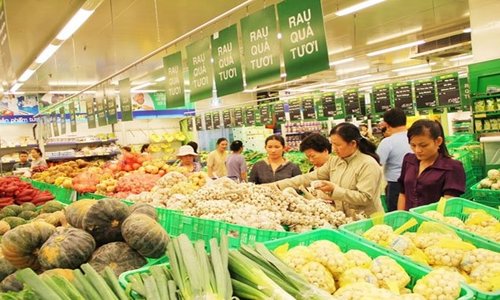Vietnam: CPI in first quarter goes as planned
It was predicted that in the remaining 9 months, administrative prices in healthcare, education and others will increase considering the domestic and international markets.
CPI target in 2018 is equal to that of in 2017, indicating the cautious approach of the government. In 2018, despite forecast showing a less uncertainty to the economic situation, there remains potential risks to the effort of controlling inflation rate, said Nguyen Tien Thoa, Vice Chairman and General Secretary of Valuation Vietnam Association (VVA).
Additionally, other factors have been in support to take CPI under control, namely the balance between supply and demand, abundant goods supply, decreasing price in high technology goods and services following the application of 4G network, reducing build – operate – transfer (BOT) road tolls fee.
Hue assigned the State Bank of Vietnam (SBV) to manage the monetary policy in a proactive and flexible manner, with a view to ensure inflation rate under control from 1.6 – 1.8%. It is necessary to supervise the cash flow and absorbing the capital inflow from foreign investment.
The Deputy PM requested the Ministry of Agriculture & Rural Development (MARD) to follow the market demands for agricultural products, cooperating with the Ministry of Industry & Trade (MoIT) to stabilize the market through provision of essential goods such as rice, pork, sugar, and others to the market.
MARD is tasked with reorganize the domestic market, and looking for new export markets for Vietnam’s main export products, in turn improving farmers’ living standard and efficiency in agricultural production.
The Ministry of Construction (MoC) to follow the construction materials and real estate markets, especially steel price. The MoC also has to work with the Ministry of Finance and Ministry of Natural Resources and Environment (MoNRE) to supervise condotel projects, with a view to ensure the sustainability of real estate.


 English
English




